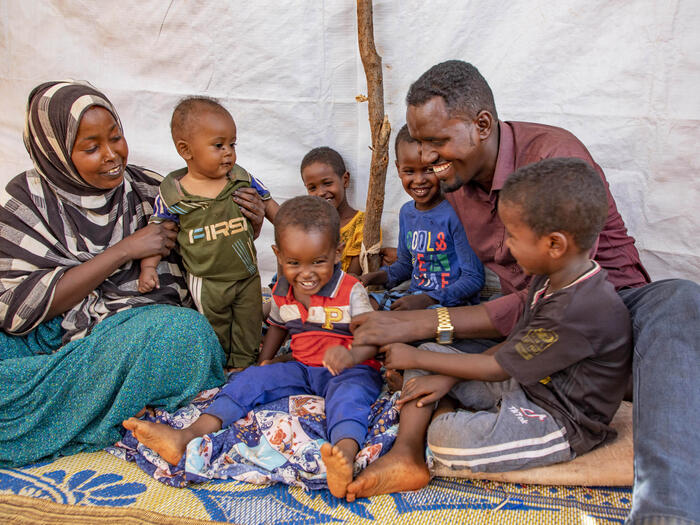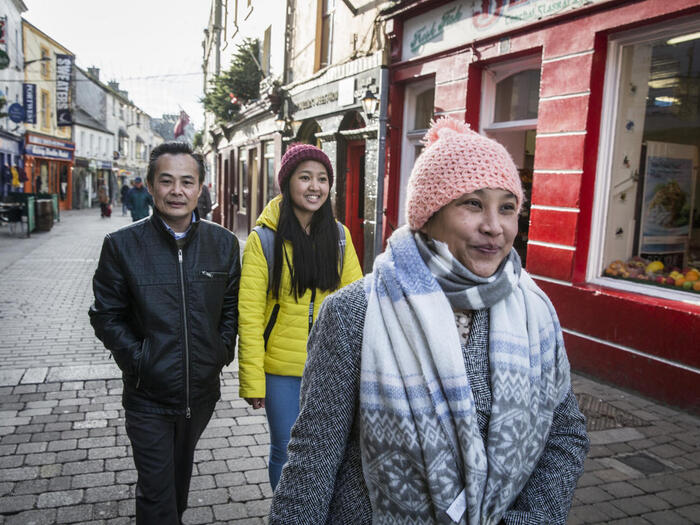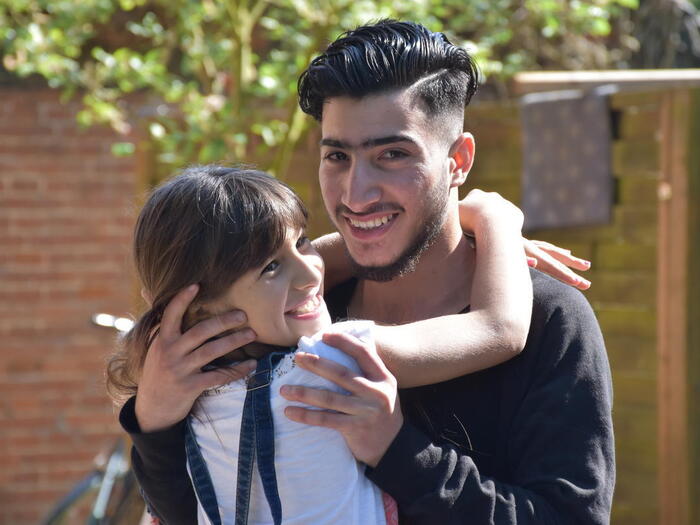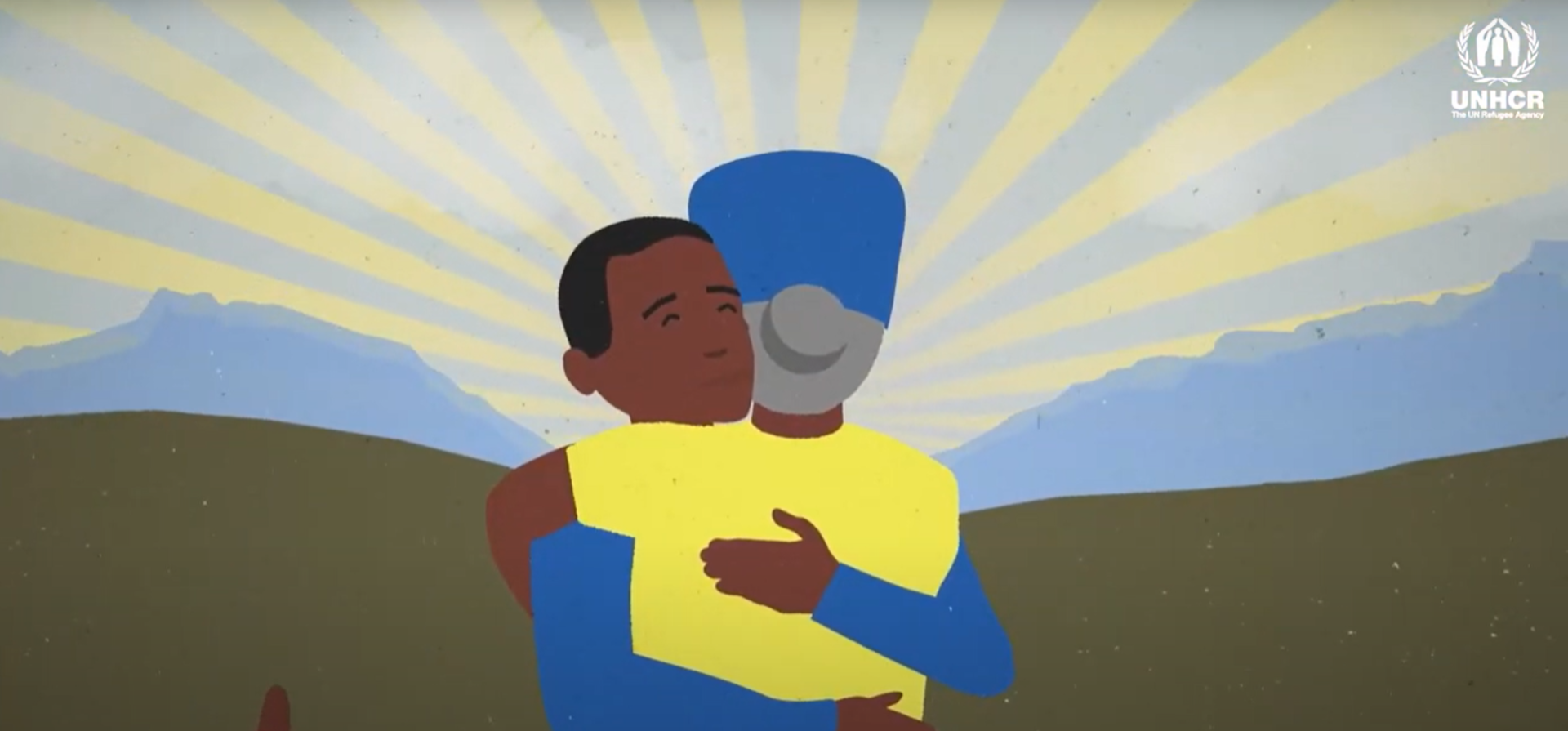Family Reunification and the Principle of Family Unity
"The family is the natural and fundamental group unit of society and is entitled to protection by society and the State.”
Universal Declaration of Human Rights
Family separation

Italy. Afghan boy reunited with siblings after crossing two continents alone. © UNHCR/Dario Bosio
Family separation
When forced to leave their homes, refugee families are often separated. In many cases, they spend months or years apart, or they may never get back together. Prolonged separation invariably leads to hardship and can have devastating consequences on individual mental health and wellbeing. Being reunited with family is generally one of the most pressing concerns of refugees and often the only way to ensure respect for the refugees’ right to being with their families.
The legal principle of family unity

Ethiopia. Refugee leader rebuilds his life with his family.
The legal principle of family unity
The principle of family unity is inherent in the universal recognition of the family as the natural and fundamental group unit of society, which is entitled to protection by society and the State.
The principle is set forth in both the Universal Declaration of Human Rights of 1948 and the International Covenant on Civil and Political Rights (ICCPR) of 1966. This language is echoed in the International Covenant on Economic, Social and Cultural Rights (ICESCR) of 1966: “the widest possible protection and assistance should be accorded to the family, which is the natural and fundamental group unit of society”. Similar provisions are contained in the Convention on the Rights of the Child (CRC) of 1989 and the International Convention on the Protection of the Rights of All Migrant Workers of 1990. Numerous provisions in regional human rights law reiterate and develop the right to family life and family unity.
In addition, people have a right to marry and to found and maintain a family and family life, and be free from arbitrary or unlawful, including discriminatory, interference with their family. These rights apply to all human beings, regardless of status. Children’s right to family unity and family life is particularly protected under international law.
The right to family life and family unity is of particular importance in the refugee context. The 1951 Convention and its 1967 Protocol oblige States Parties to provide protection to refugees, assuring the widest possible exercise of their fundamental rights and freedoms without discrimination.
Family Reunification

Reunited refugee family from Myanmar walking the streets of Galway in Ireland.
Family Reunification
Based on the legal right to family unity, family reunification procedures are established to bring separated families back together. These procedures are applicable to everyone, regardless of their status.
In the case of refugees, reuniting separated families helps heal from trauma and significantly increases integration prospects in their new home. United families can adapt easier in their new communities, as family members can not only boost economic self-reliance and offer a support network but also provide a sense of safety especially for vulnerable groups like women and children.
Well-designed reunification procedures help establish safe and legal routes for refugees. These can save lives by prevent them from turning to smugglers and resorting to dangerous journeys to reunite with their loved ones.
The legal obligation to protect the right to family unity infers a responsibility on States to facilitate such procedures. Most countries around the world have established family reunification procedures for refugees deriving from these international obligations. Applications for the reunification of refugee families and other beneficiaries of international protection must be dealt with fairly, in a positive, humane and expeditious manner.
Challenges and obstacles

Syrian refugee Numeir is reunited with his little sister in Germany. © UNHCR/Chris Melzer
Challenges and obstacles
Several practical, legal and financial obstacles often make it difficult for refugees to be reunited with their families, including:
-
Family reunification procedures are complex and refugee families may not have access to basic information in their first language.
- Given a frequent lack of stable income or savings, application and processing fees can be prohibitive. Additionally, refugees may need to meet strict income requirements to demonstrate that they are able to support their family members.
- Application deadlines for family reunification procedures are sometimes too short for refugees who might struggle to obtain all the required documents to lodge an application.
- Refugees frequently face difficulties accessing evidence of their identity or proof of their relationship to support their application (ex. passports, birth certificates or other documents).
- Given their particular circumstances, refugees often have problems maintaining contact with family members left behind in the country of origin or in transit.
- Waiting times in some countries can be long and may even exceed years.
- Where there is limited embassy presence in certain host countries, family members may be required to travel to neighbouring countries or regions for different states of their application process. This can be dangerous, expensive or even impossible for them.
Find more information on family reunification in the Third Country Solutions for Refugees: Roadmap 2030.
Are you a refugee looking to reunite with your family in another country?
- Consult the government website of the relevant country;
- Visit help.unhcr.org and consult the relevant country page for information on eligibility, procedures and available support;
- Check the FRUN Advisory Group member websites for resources and guidance on family reunification procedures.

